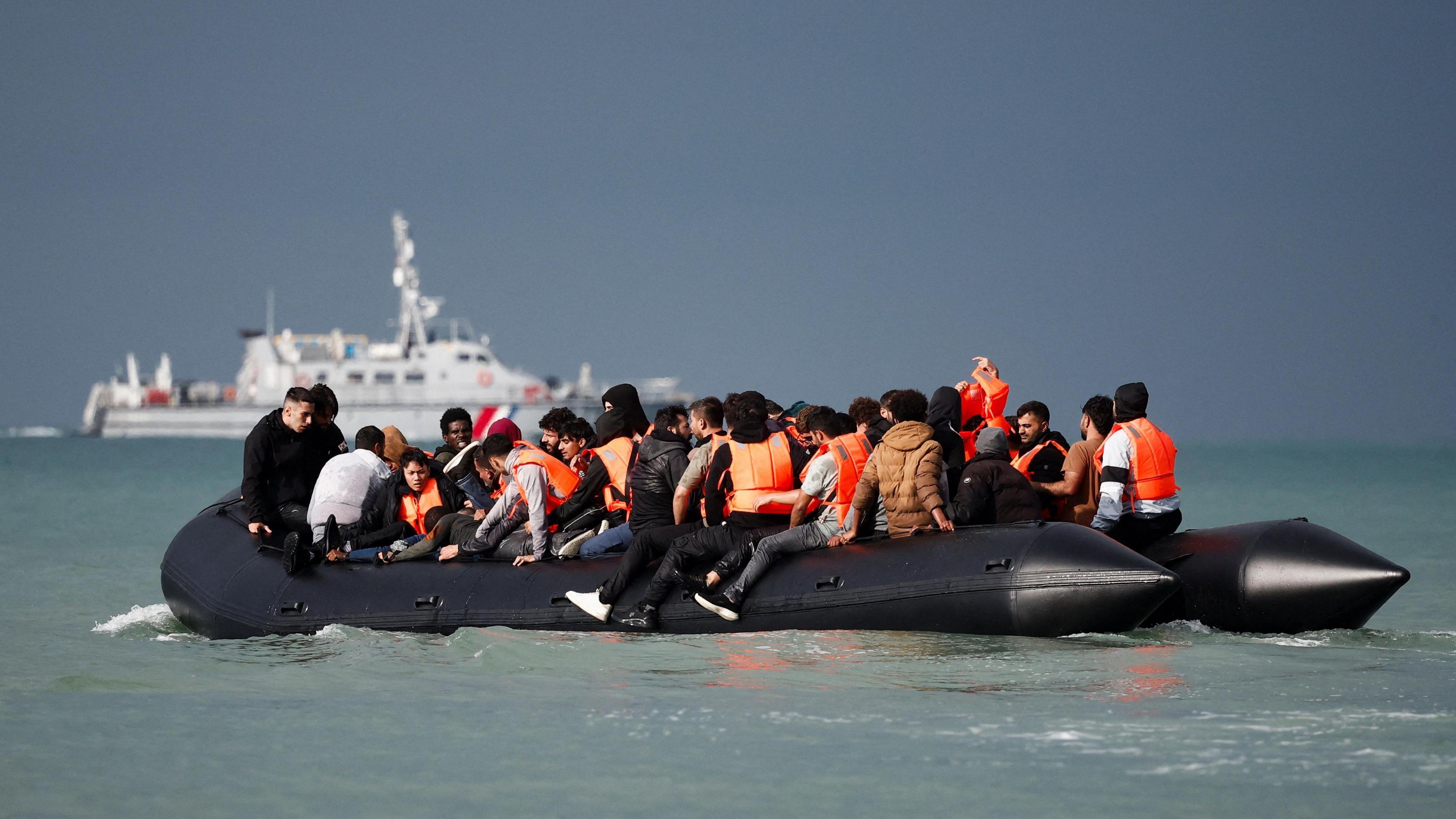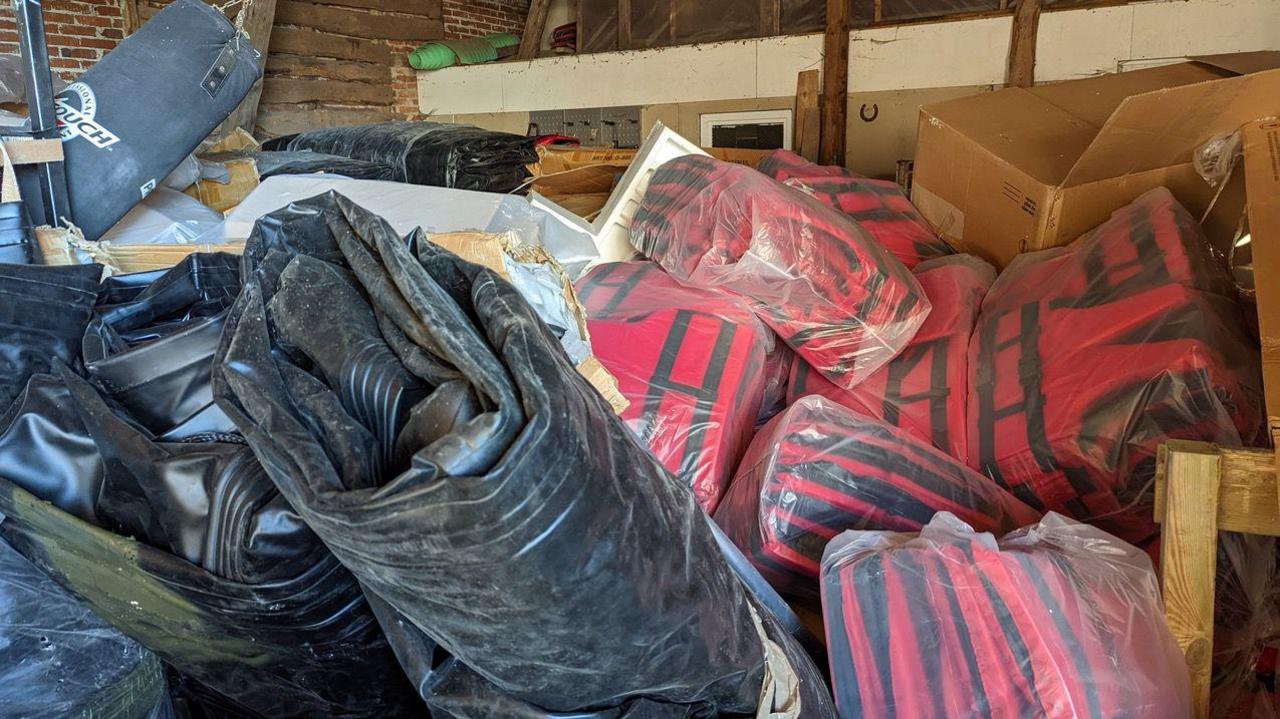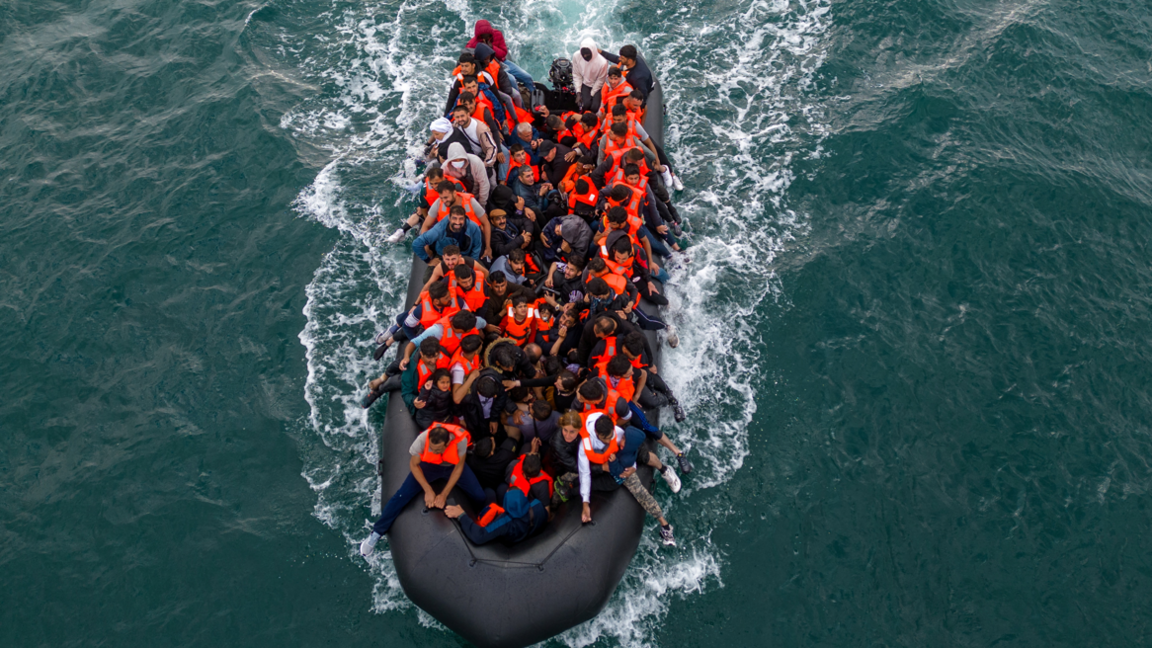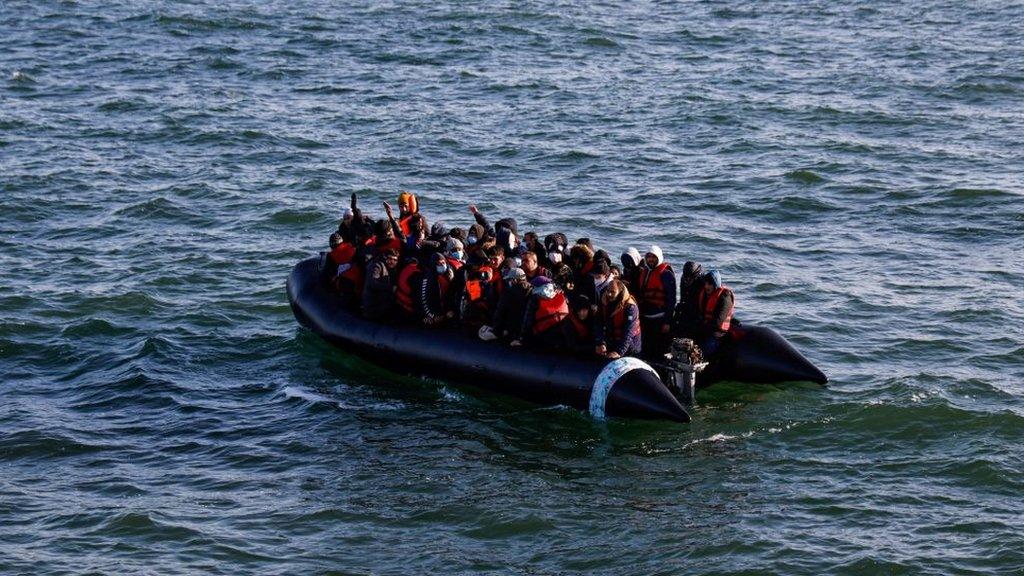'Merchants of death' people-smuggling gang jailed

- Published
Eighteen members of a people-smuggling gang accused of arranging thousands of small boat English Channel crossings have been jailed in France.
The group - which prosecutors described as "merchants of death" - comprised mostly of Iraqi Kurds and were prosecuted after a Europe-wide operation in 2022 which led to arrests in Britain, France, Germany and the Netherlands.
Mirkhan Rasoul, the gang's ringleader, was jailed for 15 years - the longest sentence among those convicted at a court in Lille on Tuesday.
The other defendants included one woman, and an Iranian man who was arrested in the UK and subsequently extradited to France.
For several years, the gang controlled most of the small boat crossings from northern France.
The UK's National Crime Agency (NCA) said the gang - thought to be behind as many as 10,000 Channel crossings - was "among the most prolific" they had come across.
More than 100 boats, 1,000 life jackets, engines and cash were seized as part of the international operation.
Rasoul, 26, had already been convicted on prior smuggling charges and was serving a separate eight-year sentence for attempted murder
He was accused of running the "tentacle-like" criminal smuggling operation from his French prison cell.

Hundreds of boats and life jackets were seized as part of the operation
The court followed the prosecutor's recommendation, imposing the longest sentence on Rasoul, French media reported.
He was also handed a fine of €200,000 (£167,745), according to local reports.
Lille's public prosecutor, Carole Etienne, wrote on X that a total of €1.445m (£1.2m) in fines had been imposed by the court.
The court heard how the gang overloaded the small boats, sometimes cramming up to 15 times more people on board than they were designed to carry.
In a statement, NCA deputy director Craig Turner said the gang's "sole motive was profit, and they didn't care about the fate of migrants they were putting to sea in wholly inappropriate and dangerous boats".
The complex trial involved multiple European nations and police forces, and generated 67 tonnes of paperwork.
- Published19 October 2024

- Published5 July 2022
